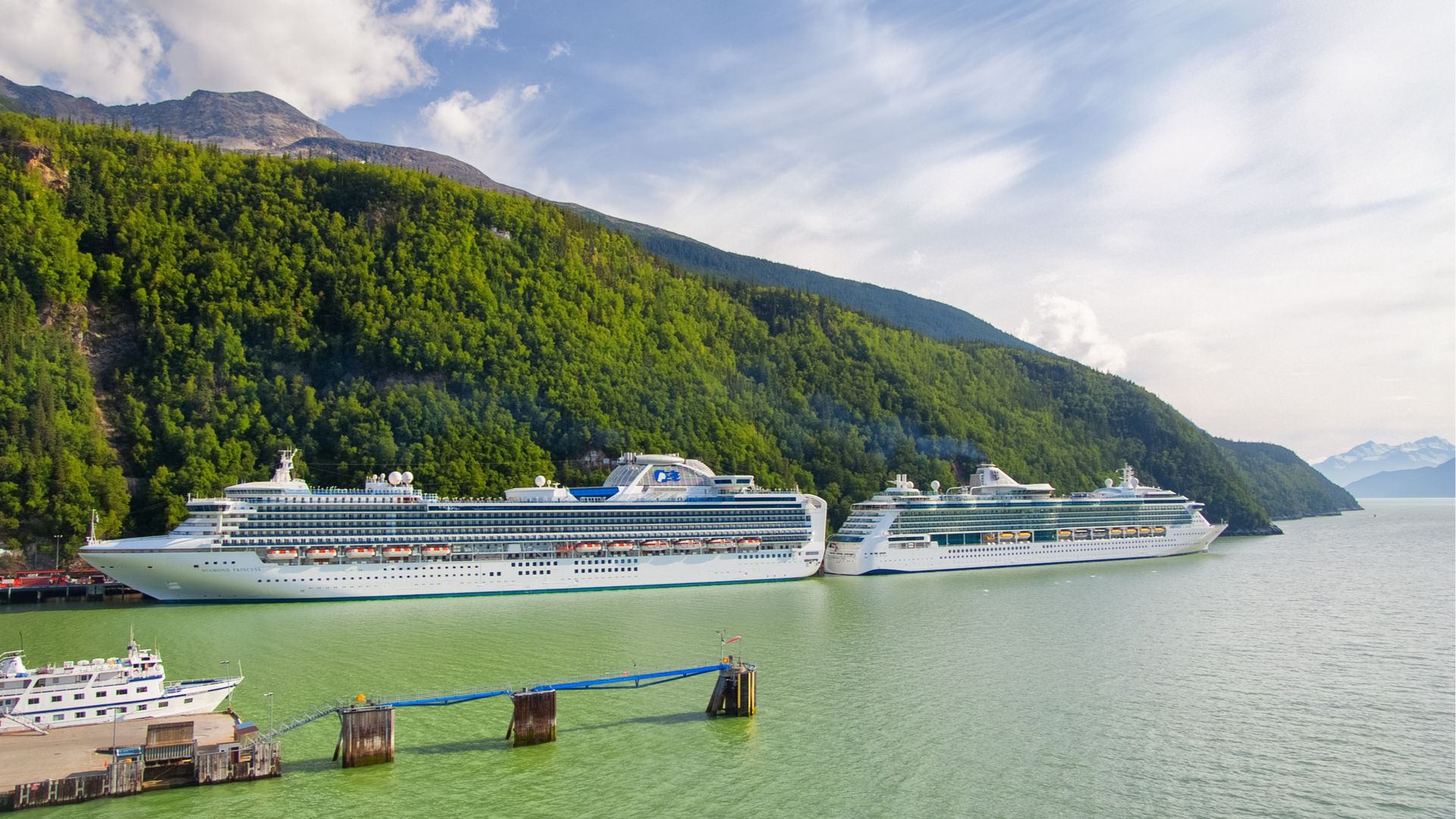Even as some cruise lines are making a strategic retreat from China, travelers from the world’s largest outbound travel market are exploring more of the globe from a ship.
Royal Caribbean Cruises, which has based ships in China for more than a decade, is seeing “significant growth” in the number of Chinese passengers sailing in locations such as Alaska and Europe.
Chief Financial Officer Jason Liberty said during an earnings call Wednesday that 75 percent more Chinese passengers are taking a trip that doesn’t include China now compared to three years ago. Cruises in Europe and Alaska, he said, have seen the number of passengers from China more than double.
“Tourism by Chinese outside of China is exploding,” Richard Fain, chairman and CEO of Royal Caribbean Cruises, said in an interview Wednesday afternoon. “We are working to take advantage of that. And that program looks like it’s successful for us, but it’s still very small.”
He added: “It’s grown by leaps and bounds, but from a very low base. But I expect it to grow more.”
The cruise company was the first to station its newest hardware in China in 2015, a departure from earlier years when operators sent their older, smaller ships to test the waters of the emerging market. Since then, Royal Caribbean has continued to move new ships to China, with the 4,246-passenger Spectrum of the Seas coming up next in June.
Royal Caribbean has maintained a strong brand image in the Chinese market
“The Royal Caribbean International brand name in China is very strong and if you trust that brand in China, you will trust that brand elsewhere,” Fain said. “That’s part of our whole thinking in going into China.”
Larger competitor Carnival Corp. also noted a growing number of what executives call “fly-cruise” passengers from China, meaning those who fly to a destination and then take a cruise.
“Given the size of the market and the fact it’s the largest outbound travel country in the world, we expect that to increase over time — and we have seen it increase,” said Arnold Donald, CEO of Carnival Corp., in a late September earnings call. “We’ve seen it increase in Chinese guests going to Australia and getting on ships, but we’ve also seen in Alaska and other places too.”
Royal Caribbean’s comments Wednesday came amid news of a strong fourth quarter. Revenue increased to $2.3 billion from $2 billion a year earlier; net income rose from $288 million to nearly $316 million.
Net yields, or revenue generated per berth per day, were up nearly 7 percent. The company expects net yields to increase 6.5 percent to 8.5 percent in constant currency next year.
For the full year, profit jumped from $1.6 billion in 2017 to $1.8 billion last year. Revenue increased from $8.8 billion to $9.5 billion.
Shares closed at $120.98 on Jan. 30th, up nearly 8 percent from the previous day.
“Obviously, with these results, you’re not giving us a lot to worry about,” UBS analyst Robin Farley said during the call.
Executives said two of the last three weeks — which make up the important “wave season” when consumers tend to make vacation plans – have seen record-setting bookings. The North American market especially is strong, executives said.
One trouble spot was the U.K., where “uncertainty surrounding Brexit has created some inconsistencies in demand,” Liberty said. He said later that the market is still “very good and strong” despite the uncertainty.
China — which has faced oversupply and pricing pressures in recent years — was also performing well. Liberty said yields grew throughout 2018 in the market, and 2019 bookings are ahead of the same time last year.
Royal Caribbean International President and CEO Michael Bayley said consumers and travel agents appear to be excited about the introduction of the newest ship. That has been good for business, as has a 15-20 percent capacity decrease industrywide. Last year, Norwegian Cruise Line announced that it was moving its built-for-China ship to North America, and other cruise lines reduced capacity in the market.
“So China is in good shape, even though there is quite a lot of negativity in terms of the news that we hear with regards to the trade battle that’s occurring,” Bayley said. “But the consumer seems to be quite confident, and things seem to be relatively good in China.”
In a note to investors, Morningstar analyst Jaime Katz said the strong bookings suggest the cruise company’s offering are giving consumers what they want.
She wrote: “We struggled to find any shortcomings in Royal’s financial commentary, with the global consumer base noted as strong independent of geography, despite some volatility surrounding Brexit, recent press regarding Germany slowing (a key market for TUI), and the rising concern that the United States could be close to the top of an economic cycle.”
This article was originally published on Skift, a Jing Travel content partner.
Additional links from Skift:




